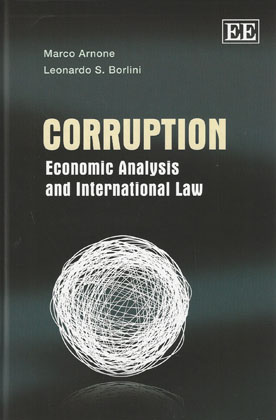
Corruption presents many legal and regulatory challenges, but these challenges cannot be met by the law in isolation. This book presents economic analysis of crime as an essential tool for shaping an effective legal apparatus.
The authors contend that in order to assess whether and how to regulate corruption, it is necessary to start with a thorough inquiry into the causes, institutional and social effects, and most of all, actual and potential economic and financial consequences of crimes.
This, they argue, should inform and help shape a balanced legal and regulatory approach to corruption. Economic analysis is also the key to measuring the efficacy of current anti-corruption instruments, and in the light of this the book finds many existing legal counter-measures lacking. On the other hand, its assessment of new international instruments and their domestic implementation and enforcement, and the monitoring mechanisms embedded by certain international organizations, demonstrates a clear relationship between realistic economic analysis and effective solutions to the economic and legal problems posed by corruption.
Offering a comprehensive legal study of corruption, grounded in economic analysis, this detailed book will appeal to scholars and researchers in crime and corruption, international public organizations and anti-corruption agencies.